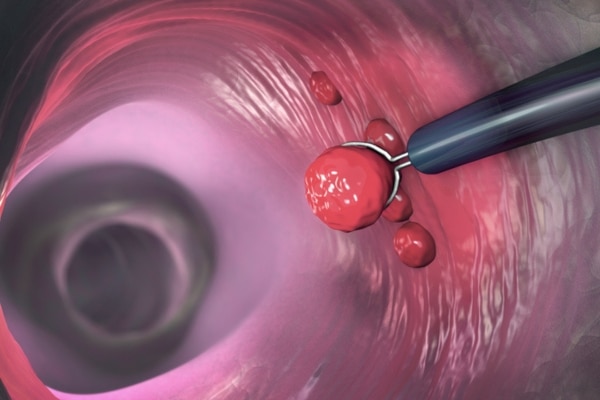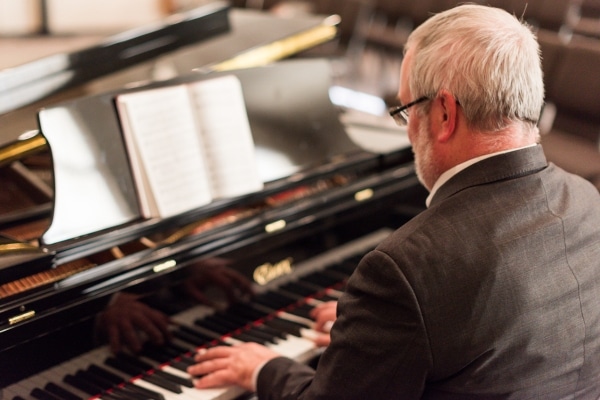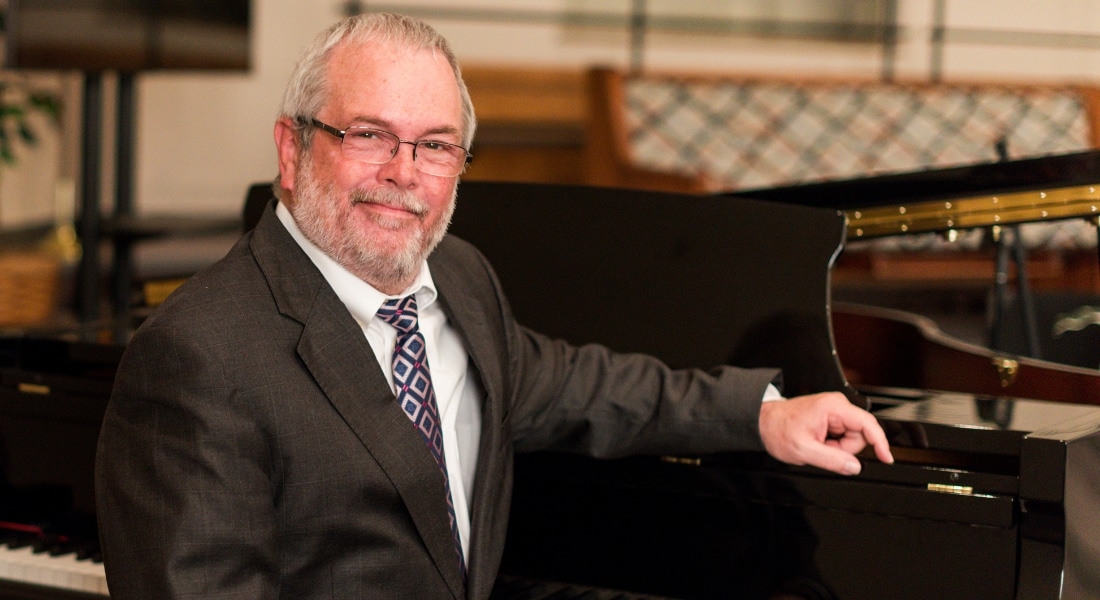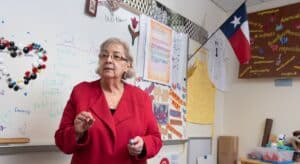A lifelong vegetarian with a clean bill of health, Paul King believed he had nothing to lose by postponing his first colonoscopy until age 61 — when he was diagnosed with colon cancer.
“I didn’t think it was a big deal one way or another,” says the Dallas accountant, now 62. “Then I was told I could die.”
Now cancer-free after surgeries at Methodist Charlton Medical Center, Paul recognizes that his first colorectal screening came about 16 years late, according to the latest guidelines from the American Cancer Society.
He also understands that there are many risk factors beyond eating red meat that could have played a role in his diagnosis, including his sedentary career as an accountant who spent much of the last 40 years sitting at a desk preparing financial records.
“I can’t be quiet about what’s happened to me because it’s that important,” says Paul, the son of a Christian preacher who often plays piano at his DeSoto church. He thanks God and the staff at Methodist Charlton for saving him. “This is a great hospital.”

During a colonoscopy, doctors often remove polyps that can turn into cancer.
PUTTING OFF SCREENING
Paul had twice postponed his colonoscopy before learning last winter that he had a 2-inch-wide tumor inside his large intestine. By then he was 61 and many years past due for a colorectal cancer screening.
With diagnoses of “early age colon cancer” doubling since the 1990s, the American Cancer Society now recommends that patients get screened for colorectal cancer starting at age 45, five years earlier than before. A colonoscopy can detect pre-cancerous polyps, small clumps of cells that grow in the lining of the colon.
“Paul’s cancer could have been prevented if we caught it at a polyp phase when it could be removed during a colonoscopy,” says Paul S. Hackett, MD, colorectal surgeon on the medical staff at Methodist Charlton.
Even so, the cancer was caught early enough to eliminate the need for chemotherapy, and Dr. Hackett was able to remove the tumor and most of Paul’s large intestine in a robotic-assisted colectomy on Jan. 12.
“He also harvested 38 lymph nodes to make sure the cancer had not spread. That’s pretty significant,” Paul says. “And not one lymph node had cancer in it. Not one, praise God.”
Take our colon cancer health risk assessment to learn more about your risk. Visit MethodistHealthSystem.org
HEALTHIER THAN EVER
Following his discharge, Paul went home and was inspired to make some lifestyle changes.
While patients like him usually have limited activity for the first six weeks after surgery, Paul maximized his recovery time before returning to work by walking every morning.
“I was walking up to 20,000 steps a day, and that is about eight to 12 miles,” Paul says. “I wanted to see if I could really do it.”
The positive impact of that new fitness regimen was readily apparent to Paul’s doctor.
“He came back toward the end of the six-week mark, and he was in really good shape,” Dr. Hackett says.
Once Paul was assured he wasn’t pushing his body too far, the walking continued and he became healthier than ever in the process.
“He followed the plan for the pathway of the surgery and has done well,” Dr. Hackett says.

Paul has been sharing his gift for music at his DeSoto church since 2020.
SPREADING THE WORD
Now several months removed from surgery, Paul has gotten back to his normal routine. He also has a newfound appreciation for life and the people who helped save his, including Dr. Hackett and his team at Methodist Charlton.
“He’s one of my best friends because of how much he cares,” Paul says. “All these people were super nice to me.”
As a man of faith, Paul says his relationship with God stabilized him throughout his journey, as did his wife, Lindy, and members of his church. He shows his gratitude by sharing his good news and playing the piano at the DeSoto Seventh-day Adventist Church.
“I didn’t beat cancer alone; I was healed by divine providence,” he says. “It meant so much on the day of my surgery to have my wife of 41 years with me, as well as our youngest son, Matthew, our pastor, and very dear church friends we count as family. ”
Paul also credits the team at Methodist Charlton for the compassionate, quality care he received.
“Everybody was treating me like a king,” Paul says, singling out the food service staff in particular. “I will never forget those people.”






